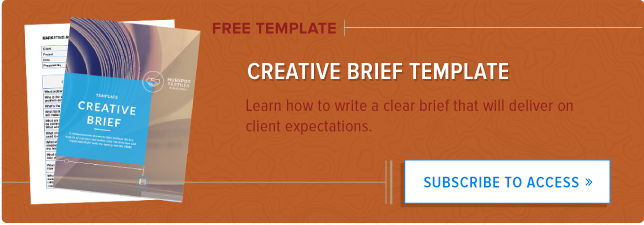
Picture this: for one day a year, everyone at your agency puts a hold on all client-related projects, clears their calendars, and gathers for a full-day brainstorm session.
For one day, the only thing that matters is creating something new from absolutely nothing.
That's the philosophy behind holding an annual agency hack day (or "hackathon"): A chance to push your team to their creative limits, consider previously overlooked points of view, and delve deeply into experimental projects you wouldn't have otherwise been able to seriously pursue.
Although a day without billable hours might sound like a dystopian nightmare to some agency folks, the benefits of holding a hack day far outweigh the potential negative consequences of losing a normal day of work. Setting aside a day to devote all your agency's resources towards a single goal can produce real, innovative solutions you can translate into successful client campaigns.
Take Brooklyn-based digital agency Big Spaceship, for example. For their 2016 hack day, they tasked their team to "make weird things that are shareable" -- and ended up with some pretty creative results. Two of the hack day projects ended up going viral: a platform where you could vote for your favorite memes of the 2016 election cycle, and "a Twitter-powered, emoji-fueled fighting game in which top celebs battle to the death."
Even if the ideas that emerge from your hack day aren't worth taking to the bank, the day you dedicate to intense collaboration is still a great opportunity for your entire team to reconnect, step outside your usual roles, and return to your regular projects with a refreshed sense of purpose. Hack days enable team members from all levels and disciplines join forces and get exposed to new points of view -- and that's never a bad thing.
A (Very) Brief History of Hack Days
Hack days -- or hackathons as they're frequently called in the tech world -- have become a ubiquitous and indispensable part of many companies' cultures. Although they've likely existed in some form since humans started collaborating, the term "hackathon" and "hack day" first started popping up in Silicon Valley in the late 1990s. At the time, hackathons were primarily a way for software developers to solve complex problems and devise new technologies in a short period of time.
The formula has always been pretty simple: a group of developers gather -- sometimes for a full week, and sometimes for just a few hours -- with a single objective in mind. They break into teams, solve the presented problem within the given time constraints, and meet back up to share their work.
In the mid 2000s, venture capitalists and tech incubators started seeing value in holding hackathons to uncover fresh ideas and startups worth funding. Hackathons went from being glorified all-nighters and low-key social events to international competitions with massive prizes.
In 2017, hackathons aren't just for tech companies. Groups from a wide variety of industries have found exciting new ideas using the hack day model. From biologists to fashion designers, people are discovering there's clear value in taking time out of your regular grind to get involved with a experimental project.
How to Run an Agency Hack Day
1) Plan your hack day far in advance.
One of the biggest management (and even employee) objectives to holding a hack day is likely to be: "We just don't have the time!"
It's a valid concern. If you work at an agency, you probably already feel like you're squeezing every usable hour out of your days as it is. The idea of setting aside your ongoing client projects for a full day can seem horrifying -- especially if it's sprung on you out of the blue.
Notify your team -- and your clients -- that you're holding a hack day far in advance. This gives your team the chance to schedule their long term projects with the hack day date in mind, and lets your clients know that you'll be unavailable for a day.
2) Give your team a creative brief.
When your hack day finally rolls around, jumpstart the proceedings with a theme or a creative brief to give your team a starting place. The brief doesn't have to be something you'd typically work on for a client. In fact, try to think of something a little outside of your team's usual scope to encourage some innovative, outside-the-box thinking.
3) Break your team into groups.
Break your agency's team into small, competing groups (or pairs, if you're a smaller agency). You should strive to make the teams as diverse as possible, grouping team members from different departments and ranks within the company to ensure there's a healthy mix of experience levels, viewpoints, and areas of expertise.
Remember: hack days aren't just for your creative team. Including employees from other areas of your agency can inject some fresh perspectives into the creative process and yeild some surprising results.
4) Set time constraints.
Once you have your employees broken up into groups, it's time for the competition to begin. One of the reasons hack days are so successful at producing creative solutions is because of the strict time constraints, which require participants to create start-to-finish projects. This helps people break out from the usual limits of perfectionism, forcing them to take an unusual idea and just fully commit to it.
Jim Cuene, president of digital innovation agency GoKart Labs, says setting a tight hack day deadline, "creates experience diversity and gives you a chance to think outside your daily domain." Participants end up running with ideas they would have usually dismissed, leading to some unexpected projects.
5) Regroup and present.
At the end of your hack day, it's time to regroup and share your results with the entire team. Give each group the chance to present their work, discuss how they arrived at their final product, and field questions from other employees.
Many agencies pick a hack day winner, either by letting everyone vote for their favorite project, or by letting an impartial panel of judges crown a winner.
6) Share the results of your hack day.
Sharing the results of your agency's hack day publically can be a powerful prospecting and recruiting tool. It's a great opportunity to highlight your agency's culture, creative process, and capacity for developing innovative work on a strict timeline.
Consider penning a blog post about your agency's hack day, explaining the initial prompt and the projects each team ended up creating. New York-based agency Kettle has a website dedicated to showing off their annual hack days (aptly dubbed Kettle Royale), and Big Spaceship shared the results of their most recent hack day on this blog post.
7) Consider running a hack day for a real client project.
Once your team has gotten the hang of running a hack day with a fictional brief, you can try the process out with a real client project. Clients will love that your team is taking a unique, dedicated approach to their account, and it gives your agency the chance to add extra brain power to a big account without permanantly placing your whole team on a single project.
You can even invite your client to come watch or participate in the hack day proceedings. Digital agency Kettle ran a hack day to brainstorm app concepts for Mad Libs, and invited the client to sit in on the action. Including clients is a great way to strengthen their relationship with your agency -- and show off what your team is capable of acheiving in just a single day.
Would you ever consider running a hack day at your agency? Let us know in the comments.

No comments:
Post a Comment